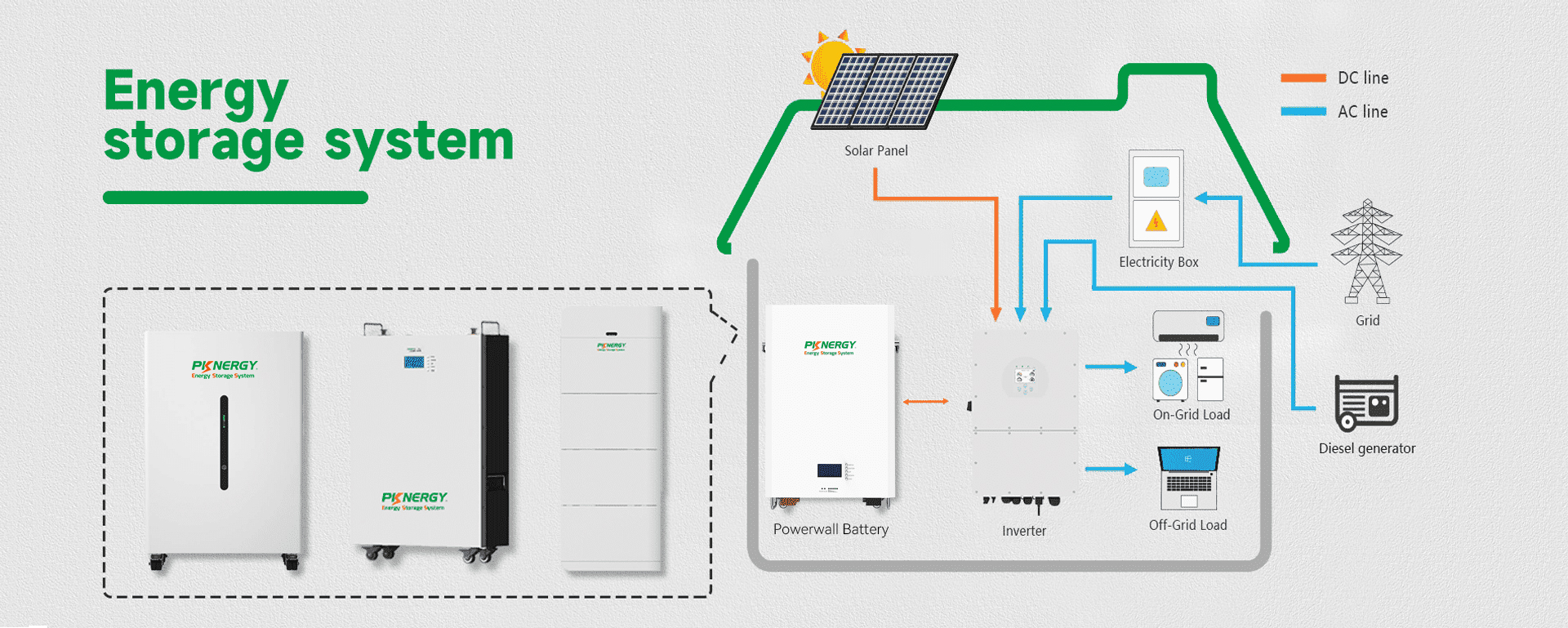With the increasing popularity of renewable energy, home energy storage batteries have become a popular choice for many households, which can store excess solar or wind energy and provide power when needed. However, choosing the right energy storage battery for your home can present some challenges. In this article, Pknergy explains the different types of home energy storage batteries and a guide on how to choose the one that best suits your needs.
Types of Home Energy Storage Batteries
Lithium iron phosphate battery: This is one of the most common types of home energy storage batteries. They have high efficiency, long life and small size, and are very popular on the market as home energy storage solutions. For example, Powerwall Battery is a popular home energy storage battery with beautiful appearance and easy installation. It is the choice of many families.
Lead-acid batteries: Although lead-acid batteries are cheaper than lithium iron phosphate batteries, they are less efficient, have a shorter lifespan, and require more maintenance. They are typically used in older solar systems, or in homes that are more cost-sensitive.
Selection guide
Energy needs: Start by determining your home’s energy needs. You need to consider how much electricity you use on a daily or monthly basis, and how long you expect to be able to maintain power. This will help determine the required battery capacity.
Cost: Prices vary greatly between battery types. Lithium-ion batteries are generally more expensive, but have a long life and are highly efficient. Lead-acid batteries are cheaper but have a shorter lifespan. Choose the battery type that suits you based on your budget.
Efficiency: Understand how efficiently your battery charges and discharges. High-efficiency batteries can better utilize renewable energy and reduce energy waste.
Lifespan: The lifespan of a battery is usually measured in terms of cycles or years. Choose batteries with longer life to reduce maintenance and replacement costs.
Scalability: If you plan to expand your renewable energy system, consider battery scalability. Some battery systems support the addition of additional battery cells to meet future needs.
Brand and warranty: Choose a reliable brand and make sure the battery comes with an appropriate warranty. This will help you get support if something goes wrong.
Installation and Maintenance: Consider the cost of installation and maintenance. Some battery systems may require more maintenance, while others are more automated.
Conclusion
Choosing the right energy storage battery for your home is an important decision that will impact your energy efficiency, cost, and environmental impact. Carefully consider your energy needs, budget and future expansion plans, as well as compatibility with renewable energy systems, and Pknergy will also recommend the most suitable solution based on your actual needs to help you make a wise choice. Home energy storage batteries can provide you with stable power, reduce energy waste, and contribute to a sustainable energy future.
Post time: Sep-20-2023

